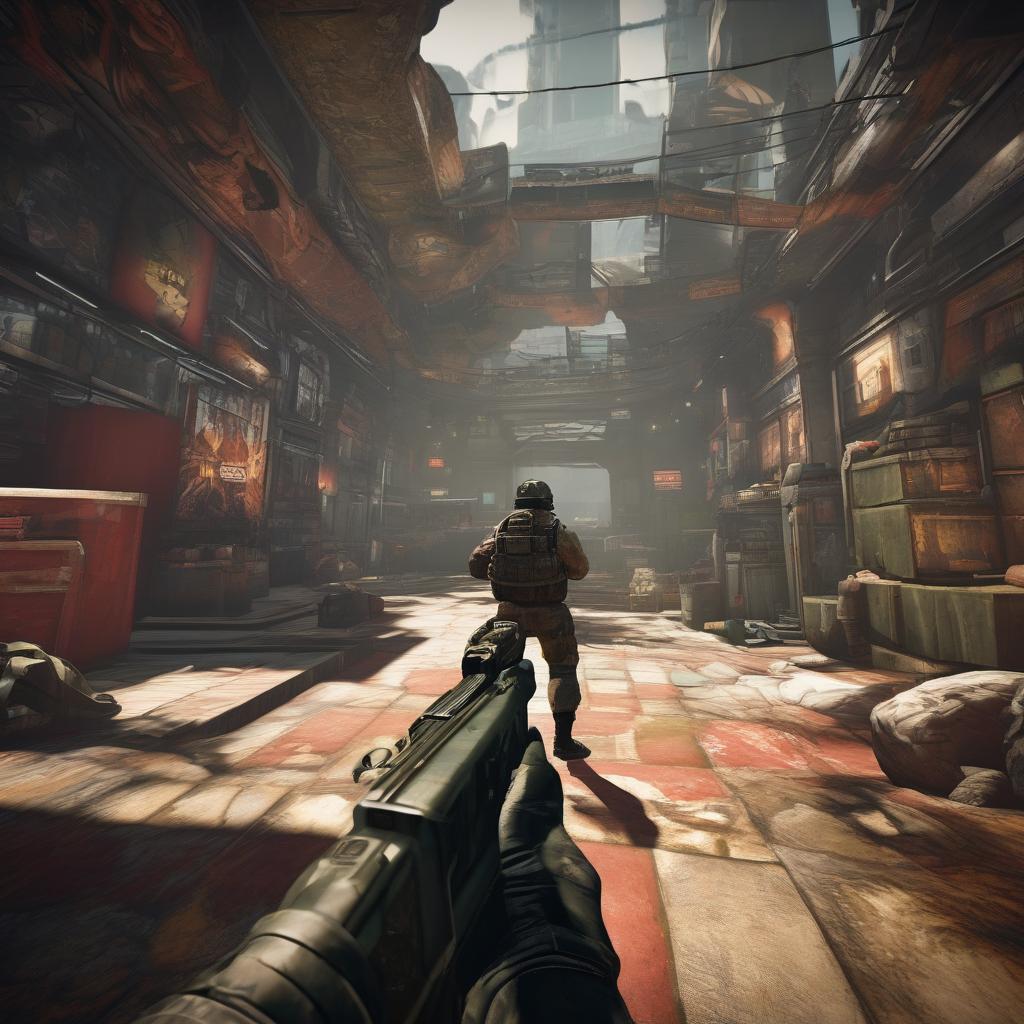FPS, or first-person shooters, is a gaming genre that’s got, well, a lot going for it. It’s a staple for fans of video gaming and has been for decades. I remember when I first got into FPS games; the rush was undeniable. I mean, who doesn’t like the thrill of seeing the game world through your character’s eyes, holding the virtual weapon in hand? It’s immersive and intense. Let’s dive into this fascinating genre and see why it continues to captivate gamers worldwide.
The Evolution of FPS Games
It all began with those pixelated classics. The origins of FPS games trace back to the early ’90s. Games like Wolfenstein 3D set a precedent. Then came Doom, which, quite frankly, blew people’s minds. The graphics were groundbreaking for the time, and it opened the door for future advancements in game design.
The Golden Era
Fast forward to the late ’90s and early 2000s, and we see the emergence of titles that would define the genre. Half-Life, Quake, and Counter-Strike became household names. These games weren’t just about shooting; they told compelling stories and created immersive worlds. The multiplayer aspect was a game-changer (pun intended), creating communities and competitive environments that are still thriving today.
Modern-Day FPS
Today, FPS games are a staple in the gaming industry. Titles like Call of Duty and Battlefield continue to push boundaries. Realistic graphics, complex storylines, and intricate gameplay mechanics make them more than just games. They’re experiences. And with the rise of eSports, FPS games have claimed their spot in competitive gaming arenas globally.
Why FPS Games Are So Popular
First-person shooters are popular for several reasons. For one, they offer an adrenaline rush that many other genres fail to match. There’s something about being in the heat of battle, strategizing, and executing precise movements that hooks players.
Immersion and Escapism
Modern FPS games have achieved such a level of realism that players can escape into these alternate worlds. The detail in environments, sound design, and character interactions is just mind-blowing. It’s almost like stepping into a movie where you are the protagonist.
Social Aspect
Another appealing factor is the social aspect. Many FPS games now include extensive multiplayer modes. Playing with friends or even strangers around the world and building a team dynamic adds another layer of enjoyment. Not to mention, it can be quite satisfying to coordinate with a group and come out on top.
For those looking to dive deeper into the world of FPS games, this guide offers some fantastic insights and tips to enhance your gaming experience.
The Mechanics of FPS Games
When we talk about FPS gameplay mechanics, several elements come into play. It’s not just about shooting your enemies. There’s a lot more to it.
Weapons and Loadouts
Choosing the right weapons is crucial. Different guns offer varying fire rates, recoil, and damage outputs. Players often have to choose loadouts that match their playstyle. Some might prefer stealth and precision, while others go for brute force and heavy artillery.
Maps and Environments
Maps are pivotal to FPS games. A well-designed map can enhance the gameplay experience by offering strategic points, hiding spots, and high ground advantages. Players need to understand the map to navigate effectively and use it to their advantage.
Player Movement
Movement is another critical element. How players move, whether they dash, slide, or take cover, can dictate the flow of the game. Mastering movement can give players an edge over their opponents.
| Game Feature | Importance |
|---|---|
| Weapon Variety | High |
| Map Design | Critical |
| Player Movement | Essential |
The Impact of FPS Games on Society
FPS games have had a significant impact on society, both positive and negative. They’ve changed the way we view entertainment and have influenced digital culture enormously.
Positive Influence
On the bright side, FPS games have encouraged the growth of technology and innovation. They inspire advancements in graphics and software development. Furthermore, the competitive nature of these games has led to the rise of eSports, providing career opportunities in a growing industry.
Controversies and Concerns
However, it’s not all sunshine and rainbows. There have been concerns about the potential for these games to encourage violence or addiction. Discussions around these issues have been ongoing, and while no conclusive evidence pinpoints FPS games as a direct cause of violence, it’s an area that continues to be monitored. For more on this, the BBC has an insightful article discussing some of these concerns.
Changing Landscape with Virtual Reality
VR is changing the game, literally. Virtual Reality has brought a new dimension to FPS games, making them more immersive than ever.
VR Enhancements
With VR, players can physically move, aim, and interact with the game environment. This creates an unprecedented level of immersion, making the experience more realistic. It’s like stepping into an entirely new world.
Challenges of VR
Though promising, VR also presents challenges. High costs and the need for space can limit accessibility. Plus, motion sickness is a real thing for some players. But as technology improves, these hurdles may become easier to overcome.
Anyway, I’m curious to see where VR takes the FPS genre in the next few years. The potential is exciting, and I think it might redefine how we perceive and interact with digital games.
FAQs About FPS Games
- What’s an FPS game? Is it different from other video games?
Yeah, FPS stands for first-person shooter. You play from the character’s perspective, making it different from other game genres like RPGs or platformers. - Do FPS games make people violent?
This is a hot topic. But no definitive evidence links FPS games directly to violence. It’s a complex issue that involves many factors. - Which FPS game should I start with?
Depends on your vibe. Classics like Call of Duty or Counter-Strike are good starting points. They’re pretty engaging. - Are FPS games good for kids?
Some are, with parental guidance. Check game ratings and content first. Some can be intense or not age-appropriate. - How do I get better at FPS games?
Practice, definitely. And maybe watch some tutorials or streams from experienced players. It’s about improving skills over time.
So there you have it, a slice of the FPS world. It’s a genre that keeps evolving, keeping us on our toes. Who knows what the next big thing in FPS will be? I guess we’ll just have to wait and see.


